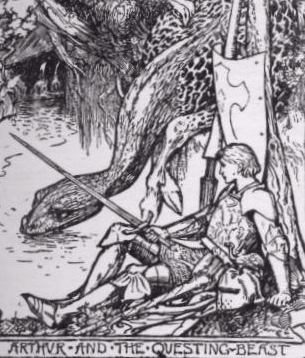Warning: don’t read this over lunch, or any other meal. Save it for the next time you’re playing Balderdash, the Dictionary Game, or any of those parlor games involving obscure words and unlikely definitions.
An earlier post (https://glossophilia.org/?p=1375) examined terms of venery, ie. nouns of multitude used to name groups of particular animals. Now let’s take a look at words used to name the ‘output’ of particular animals. Yes, there are a few, and understandably most of the names describe certain types or categories of animal waste that have been put to good use by humans, ie. as fertilizers or sources of fuel; it stands to reason that anything that man has to use, handle, distribute, clean up or step in on a regular basis is going to get its own name eventually. (There is a claim — now widely disputed — that the Inuit have multiple words for snow, because of the Eskimos’ extensive knowledge and use of this natural product.) But a few of these animal dropping monikers are peculiar. Why would anyone ever need a word to describe the excrement of an otter, or of a leaf beetle?
Here are the names I’ve found so far; please contribute to the comments section below if you know of any others.
General, especially in wild carnivorous animals: scat
Cattle: (bulk material) dung, ordure, (as fertilizer) manure, (of grazing animals, esp. for fertilizers) tath; (individual droppings) cow pats, cowpies, meadow muffins, buffalo chips, (esp. when burned as fuel) bodewash*
Deer (and formerly other quarry animals), or hunted prey: fewmets (an old English word that describes the feces of a hunted animal by which the hunter can identify it; fewmets are the only evidence of an animal’s existence, before it has been seen itself); see also below
Otter: spraint
Seabirds or bats (in large quantity): guano
Herbivorous insects, such as caterpillars and leaf beetles: frass
Earthworms, lugworms: castings
Horses: manure, road apple
Fossils: coprolite
Dragons and other mythical creatures: fewmets
I’ve deliberately avoided the vast and sometimes colorful vocabulary devoted to human waste, since it seems a little crass for this forum. But there’s no shortage of words both formal/medical and colloquial/vulgar to describe it, and if you really feel the need to indulge your curiosity, there’s a whole web site devoted to slang names for both the product and the process: the “Poop Thesaurus” can be found at http://www.heptune.com/poopword.html.
You might also (inexplicably) want to read poetry about it: here’s a short anthology of works on this unseemly subject:
“Ode on the Commode” by Jack Butler
“Excrement” by Alan Ginsberg
“On the Rectum of Peacocks” by Gabriel Gudding
“****: An Essay on Rimbaud” by Thom Gunn
“The Soul of Spain with McAlmon and Bird the Publishers”
– Ernest Hemingway
“An Epiphany” – X.J. Kennedy
“Holy Shit” – Galway Kinnell
“The Excrement Poem” – Maxine Kumin
“Feces” – J.D. McClatchy
“Yam” – James Merrill
“I Get a Feeling” – Liam Rector
“The Dung Pile” – Peter Streckfus
“The Beautiful Bowel Movement” – John Updike
* Here is an explanation of the origins of the word bodewash on a web site about Canadian words:
http://www.billcasselman.com/canadian_food_words/manitoba_words.htm
“Bodewash” warmed many an early Manitoba settler. This term for dried buffalo dung used as a fuel was borrowed from the Canadian French of fur trappers where it appeared-at first humorously-as bois de vache ‘cow wood’ and also in the more refined phrase bois des prairies ‘prairie wood.’ Buffalo chips or cow chips were both called bodewash, which is a direct Englishing of bois de vache that shows up in the rural Manitoba folk saying “squished flatter ‘n a bodewash chip.” Anyone who could find the chips of buffalo dung used them, since there was little wood available. Dried cattle burns with a heavy odour, while buffalo chips are relatively odourless and were in plentiful supply before the vast herds were slaughtered.”

